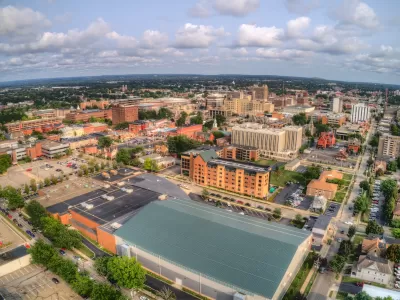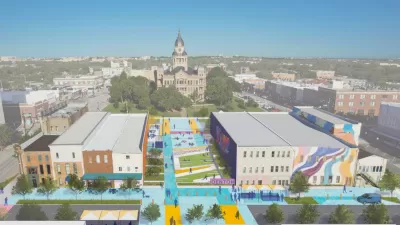The federal economic development program has brought over $100 billion in private investment to revitalize struggling communities.

In an opinion piece for Governing, Steven G. Glickman and Jonathan Tower argue for the expansion of the federal Opportunity Zone program created by the 2017 Tax Cuts and Jobs Act.
Opportunity Zones, the authors explain, “were originally designed as an experiment to incentivize new streams of private capital investment in distressed areas, pushing overly bureaucratic decision-making from the federal government down to more nimble states, cities and individual investors in exchange for long-term investments that generate new economic activity and housing.”
Since then, Opportunity Zones were created in over 8,700 communities across the U.S., attracting more than $100 billion in private investment by 2022, all geared toward revitalizing underserved communities. The authors note that “To get it right, you have to have the right mix of community leaders, investors, entrepreneurs and developers with a shared long-term vision of the future.”
The authors support extending and expanding the program to make more communities eligible, asserting that the program could grow to become the first billion-dollar economic development initiative. “If we are really serious about the success of Opportunity Zones, Congress should include them as a permanent part of the tax code, providing the private sector with the clarity and confidence needed to achieve the true scale of impact that’s possible.”
FULL STORY: Opportunity Zones Are a Big Success. Let’s Make Them a Lot Bigger.

Maui's Vacation Rental Debate Turns Ugly
Verbal attacks, misinformation campaigns and fistfights plague a high-stakes debate to convert thousands of vacation rentals into long-term housing.

Planetizen Federal Action Tracker
A weekly monitor of how Trump’s orders and actions are impacting planners and planning in America.

In Urban Planning, AI Prompting Could be the New Design Thinking
Creativity has long been key to great urban design. What if we see AI as our new creative partner?

King County Supportive Housing Program Offers Hope for Unhoused Residents
The county is taking a ‘Housing First’ approach that prioritizes getting people into housing, then offering wraparound supportive services.

Researchers Use AI to Get Clearer Picture of US Housing
Analysts are using artificial intelligence to supercharge their research by allowing them to comb through data faster. Though these AI tools can be error prone, they save time and housing researchers are optimistic about the future.

Making Shared Micromobility More Inclusive
Cities and shared mobility system operators can do more to include people with disabilities in planning and operations, per a new report.
Urban Design for Planners 1: Software Tools
This six-course series explores essential urban design concepts using open source software and equips planners with the tools they need to participate fully in the urban design process.
Planning for Universal Design
Learn the tools for implementing Universal Design in planning regulations.
planning NEXT
Appalachian Highlands Housing Partners
Mpact (founded as Rail~Volution)
City of Camden Redevelopment Agency
City of Astoria
City of Portland
City of Laramie





























